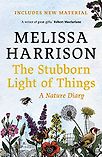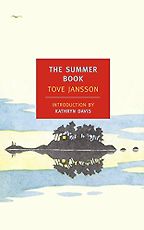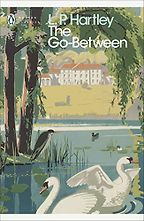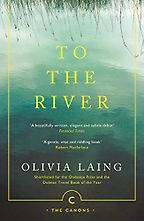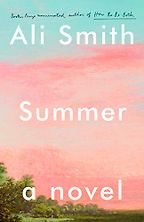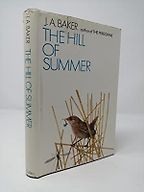I asked you to recommend five of the best books about summer. Before we begin, why do you think it’s important to pay attention to the passage of the seasons?
It’s hard for me to imagine living in a way that doesn’t take the seasons into constant account. When I start writing a book, I don’t start with character or plot, I start with setting—and by ‘setting’, I mean, where I am, what time of year it is, and what the natural world is doing. Because that informs everything else.
For me, that’s the basis of everything. I find it grounding and enriching to live connected with this ancient cycle. The more connected I can be with it, the better my mental health, the better my creativity.
Get the weekly Five Books newsletter
For a while I lived in London. It’s completely possible to be deeply connected to the natural world in cities, but it takes a little bit more deliberate attention. You can be almost unaware of the natural world—go from your home, where you can keep the lights on whenever you like, to an air-conditioned office, via the tube. The only change is what you wear.
But if you choose to engage with the seasons, you get this wonderful richness. You can go out and look for the first snowdrop in late January, early February. Pick one and bring it indoors, or plant one in a windowbox. You can note the first blackbird song of spring. You can look for the swifts’ return. There are many things you can do to keep that groundedness.
You live in Suffolk now, in the English countryside.
I can’t escape the weather and the seasons. Sometimes that’s really hard. I live in a 300-year-old house with no central heating. If I can’t light a fire, I’m in trouble. I have a few plug-in radiators, but they won’t heat the house. In winter, I have to think: have I got enough wood in the house, or will I have to go out and chop it? I should do that before sunset. So: when is sunset? These things become part of your general awareness.
We evolved to know these things, to be connected by our body and our bones to the outside. That’s why we are finding out all these amazing things, like touching soil boosts our mood due to bacteria. Our gut flora respond to the natural world. Every part of us does. When we insulate ourselves from it, I think we suffer very insidious harms. We increase convenience, but it can eat away at something.
I’m aware that there are more important things for some people to worry about. If your safety, or your access to the basics of life, are not guaranteed, then you won’t worry too much if you’ve been in touch with soil bacteria or not. But for those lucky enough to be able to make these choices, I think we should choose to be as aware as we can. What is the weather doing? When is it full moon?
I was interested in what you said about how you approached a new book—with setting and season. I’m a big fan of your novel All Among the Barley, where the setting is incredibly vivid. There’s this sense of ripening, of momentum. Recently you released The Stubborn Light of Things, a book linked to your hit podcast of the same name, which is based on your contributions to The Times’s nature notebook.
That’s right. I started writing for The Times in 2014. Then, I was living in South London with my husband and dog, and now I’m living by myself and sharing the dog. So there’s a big life change covered by the course of the book. When I moved to Suffolk, the idea was to live in both places and have both kinds of life. The pandemic put paid to that. But a big part of me is a Londoner, and I’m proud of that. As I was saying, if you want to be connected to nature in the city, you absolutely can.
There wasn’t any plan to make a podcast of the same name until the pandemic. It was a last-minute thing: ‘I’m here in Suffolk, surrounded by woods and fields, when other people aren’t. What can I offer people?’ Also, my other work dried up—a magazine I worked for folded—so I had lots of time. It went on for three months and has been enormous, which is a massive surprise and a huge pleasure. It’s kind of overtaken the book—it’s the ‘book of the podcast’, which wasn’t how I planned it. I’m really proud of it.
You should be. Let’s start with what feels like the urtext of summer books: The Summer Book by Tove Jansson. Readers might know her as the author of the Moomins series. Why do you recommend this book?
Oh, gosh, I think it’s probably in my top three most important books to me in my whole life. I grew up with the Moomin books. They were transformative for me. There was safety in them: you could make mistakes, and it didn’t matter. You could take risks. You could go on an adventure, come home and Moominmama would make you a birch bark canoe. And maybe give you a cigarette to settle your stomach. Everyone was very bohemian. They might eat outdoors. Or they might just pack up everything and go. Money wasn’t important; one character goes to sit on an island, and finds these little flakes of gold and hoards them and thinks they’re very important. The others are all like, that’s a bit weird. They end up using the bits of gold to edge a flowerbed. So, the kind of middle-class concerns that I was growing up within commuter-belt Surrey, were… not scoffed at, but gently undermined. Jansson’s Moomin books showed the value of connected and imaginative life.
Then I read The Summer Book as an adult, not long after my Mum died. It’s a book about a summer on a Finnish island, but it’s also a book about grief. It’s about a little girl and her grandmother quietly negotiating the ideas of mortality and bereavement through a series of incredibly delicate and funny conversations.
“Summer is a very weird concept”
There are subtleties in that book that I find hard to express. When the little girl’s grandmother loses her teeth, they both look for the teeth together. And when they find the teeth, grandmother won’t let the little girl see her put them in, because that bit is private—not the teeth, but the putting them in. And that is to do with selfhood, it’s to do with mortality and being old. There is a wisdom and a kindness that runs through this book. I’ve given it to so many people. It’s wonderful.
Yes. The setting is incredibly vivid. And very similar to Jansson’s own summer residence, on a tiny island in the Finnish archipelago.
It’s a little island world. That was interesting to me as well. I used to draw the islands, the maps from the Moomin books, when I was a kid. Over and over again, I’d draw little islands—the idea of a boundaried world. You could know everything that was in it. I was also obsessed with ponds. It’s the same idea: a little world where you can be in control, you know how many frogs there are, the dragonfly larva. You can fish them all out and put them back in. That’s a bit like writing books. You get to draw the line round everything, and say where it stops.
I love that. Shall we talk about The Go-Between by L. P. Hartley, your second summer book choice? It’s a story of loss of innocence, I suppose, set in rural England. Why would you recommend this?
It’s a coming-of-age story set just before the First World War, in that golden age that we go back to almost obsessively in this country, the moment just before everything changed.
But the seeds of that change had already been planted—it was not a golden age. This is something that I really have tried to explore in my fiction, especially in All Among the Barley, this pull that we have towards nostalgia, this idea that everything was perfect not long ago, almost within living memory, then it all went wrong. It’s a deeply damaging idea, because it says that all the changes that have happened since have ruined our idea of England and who we are. And what does that mean for people who have come here in those years since? And also, what does it mean for people who were never part of that ideal, which was very southeastern? It was white, it was wealthy, it was Anglican. It doesn’t even include all England, that ideal, let alone anything else.
Yes, I was about to say—what you’re discussing is a peculiarity of English culture, I think. We are not particularly nostalgic for that period here in Scotland.
It’s quite a harmful vision that we keep being drawn back to.
The Go-Between is set in summer. Summer is used by novelists a lot, to create a pressure cooker atmosphere—it gets hotter and hotter and hotter, and everyone’s waiting for the weather to break. This really is the central text for that, to me, that idea of things being stifling, being airless and dry, and having that sense that it’s got to break. It’s got to break, and you want it to, but you’re frightened too, which is kind of the end of childhood, isn’t it? You’re desperate to grow up, go on to the next bit, but you’re terrified as well. Hartley conjures that up so well.
As you’re talking about it harking back to a rosier time, I think it’s probably important that this is set in an aristocratic family as well. You also get that sense of the final glory days of that kind of wealth, that kind of upper-class lifestyle.
Yes. And he shows that it’s corrupt as well. He’s not doing a Downton Abbey, by any means.
Your third summer book recommendation is a non-fiction book, Olivia Laing‘s first: To the River, which follows the river Ouse from source to mouth. It’s a lovely, lyrical book. I think the walk takes place around midsummer, is that right? Is that why you’ve chosen it?
She’s such a fantastic writer. She is a proper intellectual, and you can see that in her trajectory. I find her first book more accessible than what she’s written since. I loved her descriptions of the natural world, and I think a lot of people wanted her to be a nature writer. But that’s not the path that she’s chosen, and why should she?
There’s a scene in particular, where she describes a cloud of pollen that she can see, and she can see it moving towards her. It’s like this spectre, a heat-induced spectre, coming towards her. I’ve never forgotten that scene. She writes about Virginia Woolf, and her own recovery from heartbreak. There’s a wonderful feeling of being a woman out in the world, out walking, which is something that I do, and I wish more women did. I understand when I hear women say, I don’t dare, or I’d be too frightened, but it saddens me the way that we edit ourselves out of the world. The way we lock ourselves indoors, or allow ourselves to be locked indoors, where, you know, statistically we are most at risk.
Five Books interviews are expensive to produce. If you're enjoying this interview, please support us by donating a small amount.
To read about a woman just out by herself, walking in the day and staying in pubs at night, was just really inspiring. And I ended up doing that when I was writing At Hawthorn Time, I walked up the A5 for four days and three nights. It was fantastic, but I felt incredibly self-conscious and out of place. It was hard in all sorts of ways I hadn’t expected, but I don’t know if I would have done it if I hadn’t read To the River.
It’s got nature writing elements, but is also almost a cultural history of the river as well. It braids it all together.
Yes, in that way really good writers can do. It’s not just about Virginia Woolf. It’s not just about the river. It’s about what it is to be human.
Let’s move on to Ali Smith’s book next. I see a lot of parallels between Smith and Laing, partly in their joint interest in visual art, but also in their interest in experimental fiction. Laing won the James Tait Black Memorial Prize for Crudo, a novel that relates the events of Laing’s own honeymoon summer in 2016, whereas Smith has described her Seasonal Quartet as “a time-sensitive experiment”. She has written and published these four novels incredibly quickly. You’ve selected Summer, one of the books that make up the quartet.
The whole idea of writing something and bringing it straight out… the balls of that. She just did it: committed to it, got everyone around her to commit to it—publishers, everyone in the industry. That’s just extraordinary. She has done something which no one else has done, which is catalogue a year.
I remember Gordon Burn’s Born Yesterday, in which the UK news agenda of summer 2007 unfurled in novelistic fashion. Madeleine McCann goes missing, Gordon Brown comes to power, and so on. So, with Smith, with Laing, with Burn, we find a micro genre: real-time novels.
I don’t think I could do that. It’s why it really interests me, you know? It isn’t how I could work, ever, so I’m drawn to it. I watch it almost like a high wire act.
I think it helps us see the larger themes of the day, when often they are invisible to us at the time.
Ali Smith has talked about how some of those themes weren’t visible to her either. She had to let go and allow things to emerge. If you’re a real list-maker, diary keeper, control freak like me, the letting go part of creativity is the hardest but most important bit. It’s where the interesting things come out. I think that’s one of the other reasons why I’ve loved what Ali Smith has done through her career, watching someone be so comfortable with not being in control. You’re drawn to the writers who have something to teach you.
With her Seasonal Quartet, she’s transformed in real time what we all went through, particularly our hopes and our fears. That’s what art is, isn’t it? A mediation between the conscious and subconscious. It does that for the individual, and for society as well. Artists are the bridge between the currents that run underneath, the fears and hopes that nobody is fully aware of. It’s their ultimate expression. It’s a bit like being the seismograph needle—things are going on deep under the surface and the artist’s role is to make them visible. And my God, that’s exactly what Ali Smith has done.
Fiction as psychoanalysis.
People say writing is like therapy. And, you know, they can produce the same effect, which is to allow you to become uncomfortable with uncertainty, and with the parts of yourself you don’t know about. They allow you to tell a story about yourself that makes sense. But they shouldn’t be undertaken in the same spirit. If you’re writing a book in order to heal yourself, I don’t think it will have use for other people.
I think that brings us to our final text, J. A. Baker’s The Hill of Summer. I think of it as a companion volume to his more famous book, The Peregrine.
Yes. So, The Peregrine is an incredible, concentrated prose poem. He says it’s the story of one winter tracking peregrines in Essex. Actually, it was compiled from his diaries over several winters. He was a very intense man with lots of challenges. Very little was known about his life until a few years ago, when I think Robert Macfarlane brought him to attention, and he was republished. At that time, people didn’t know when or where he had died, or anything about him at all. And much more of that has come to light now. There’s an archive, a box somewhere containing his old binoculars. He had a condition that was affecting his hands—they were becoming claw-like, like a bird.
I have a biography of Baker somewhere, My House of Sky.
Baker was living at a time when DDT was wiping out our birds of prey populations. There was a real sense that they were going to become extinct. What happens with DDT is that it builds up in the bodies of animals as they go up the food chain. It becomes more and more concentrated. In birds of prey, apex predators, it was thinning the shells of their eggs, so their broods were failing. It looked like a done deal. Baker was writing in the face of illness and enormous loss. His book is beautiful. I know a lot of people find it dark and full of death. There’s almost a death wish at its heart. He wants to witness his peregrine kill, and comes very close to its kill site.
The Hill of Summer is very different. It’s similarly intense, but less death-y. It has the same, almost mystical attention to place and to detail. In that, he’s quite like Richard Jefferies, the Victorian nature writer who was, in many ways, a mystic. He had incredibly intense experiences of nature that he captured in words, some of which are breath-taking to read, and I find the same with Baker.
Thank you. You mentioned earlier the literary role of summer as a way of building tension—as temperatures rise. What else do you look for in a summer book?
It’s interesting. When I was growing up, summer holidays were July and August. So that’s when you think summer is: the peak of the year. But actually, those holidays were timed to coincide with the harvest. They’re actually the end of the natural year. The peak of the natural year is May and June, and in July and August, almost nothing happens. The grass stops growing, the leaves on the trees are getting old and leathery. It’s slightly too early for there to be much fruit on the hedgerows, but all the blossom is gone, nothing’s flowering anymore. Among the only things that are flowering are the non-native plants we’ve brought in for our gardens, almost everything native has stopped. There’s just this big gap where nothing happens.
Except for us. We have our summer holidays, we go to the beach, we have this big explosion of life and leisure, but it doesn’t match up with the activity in the natural world at all. I find that really interesting. So, books that are truly about the peak of the natural year are always set earlier, unless you’re talking about farming memoirs. When I was writing All Among the Barley, I was reading a lot of farming memoirs from the 1930s. And of course, for them, it is September when everything’s golden and the fields are full of treasure, and they harvest and bring it in and there’s the bright grain and the wealth piled in the barns. There’s that feeling of plenty and luxury then. So, I don’t know. It’s a weird one that our summer-set books are only the human summer. They’re not the nature summer, and they’re not the farming summer.
I hadn’t really thought of it that way. Although midsummer, 21 June, never feels summery to me. It’s still too cold, too unpredictable.
It’s a weird thing. We know what spring looks like. And we know winter is snow, although we’re going to have to adjust that, I think, especially those of us who are further down south. And we know that autumn is leaves and wood smoke. Summer is a very weird concept. We have this idea of heat, and the sea and leisure, but we don’t really have anything to pin it to, in terms of what’s going on outside. It’s almost more of a human construct than it is anything else.
Interview by Cal Flyn, Deputy Editor
August 19, 2021
Five Books aims to keep its book recommendations and interviews up to date. If you are the interviewee and would like to update your choice of books (or even just what you say about them) please email us at [email protected]

